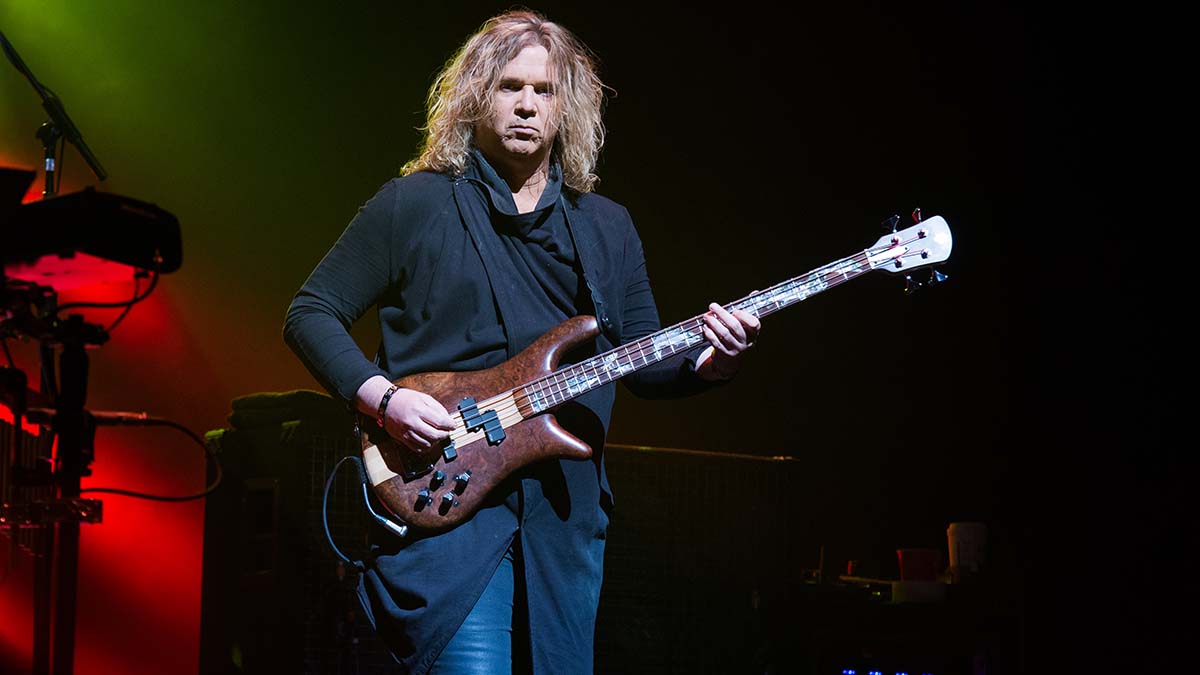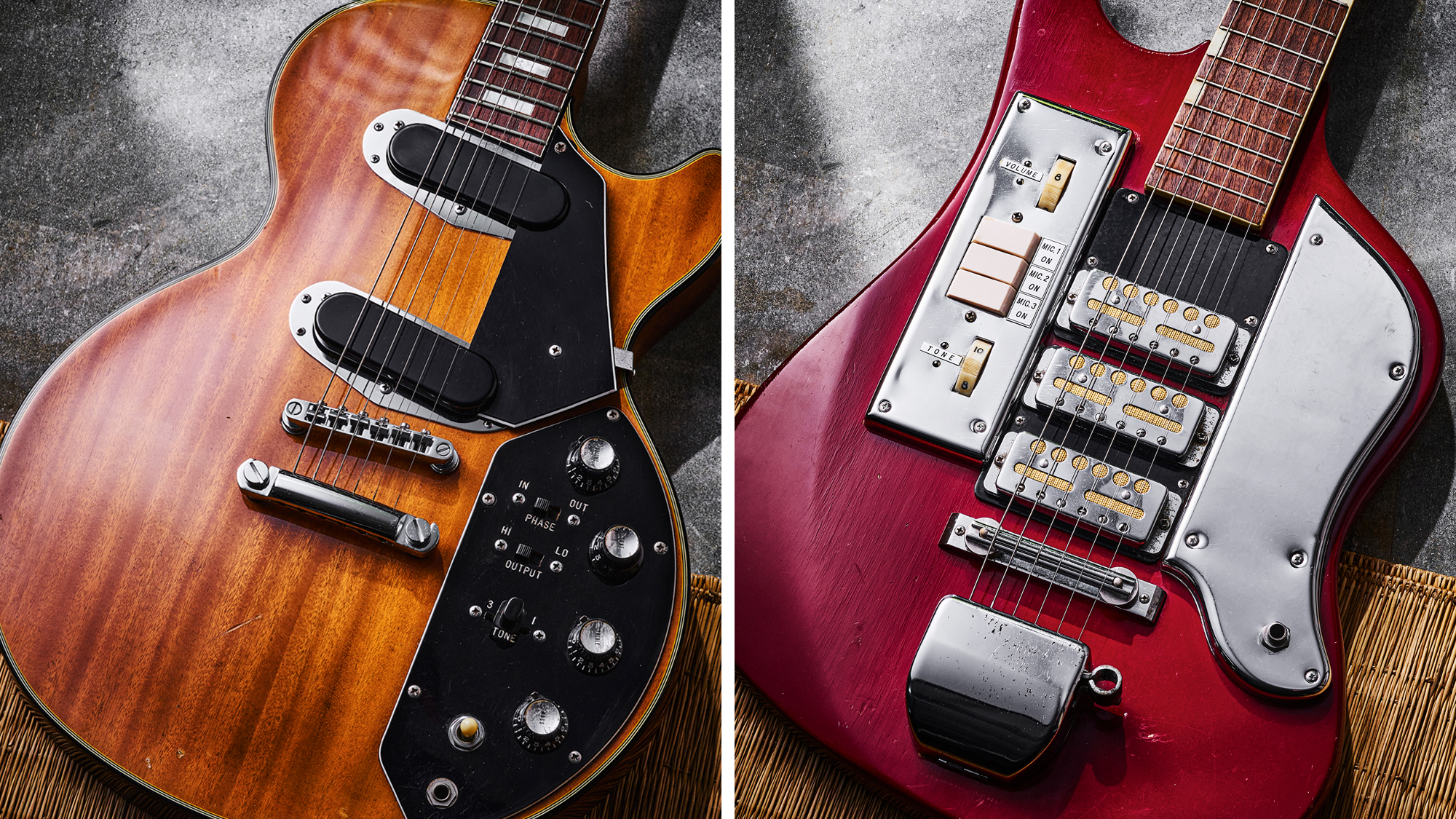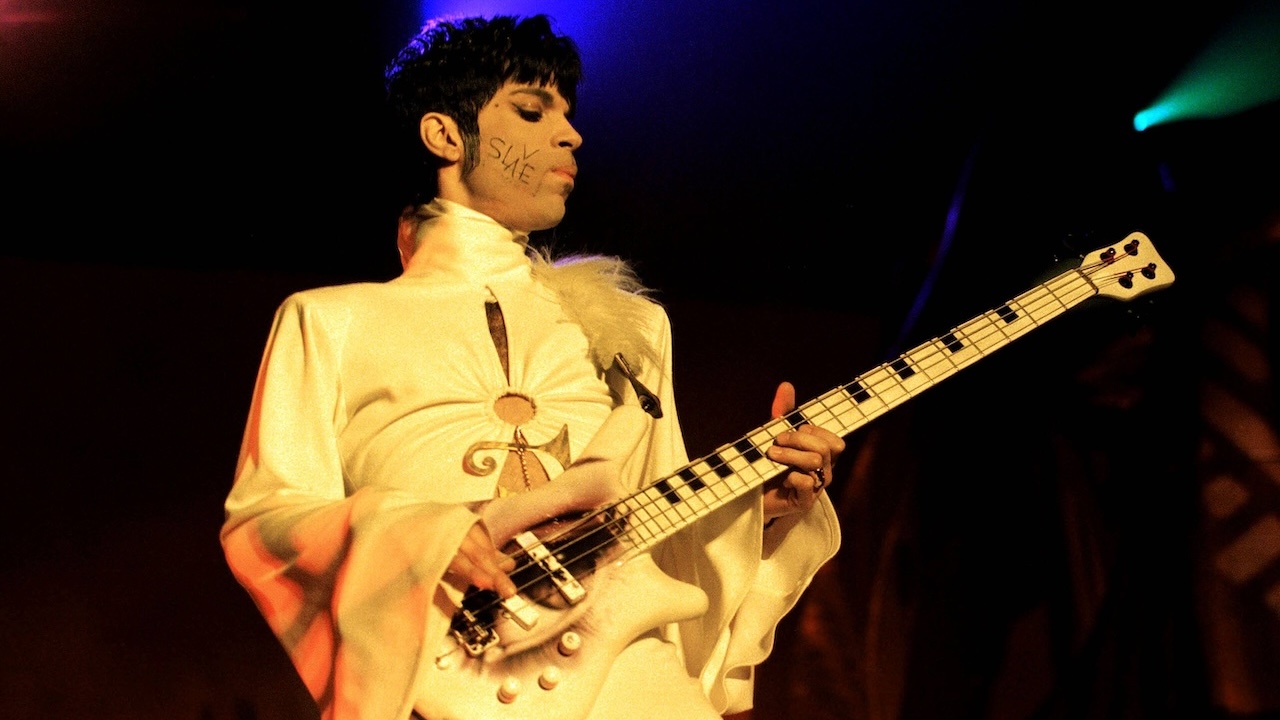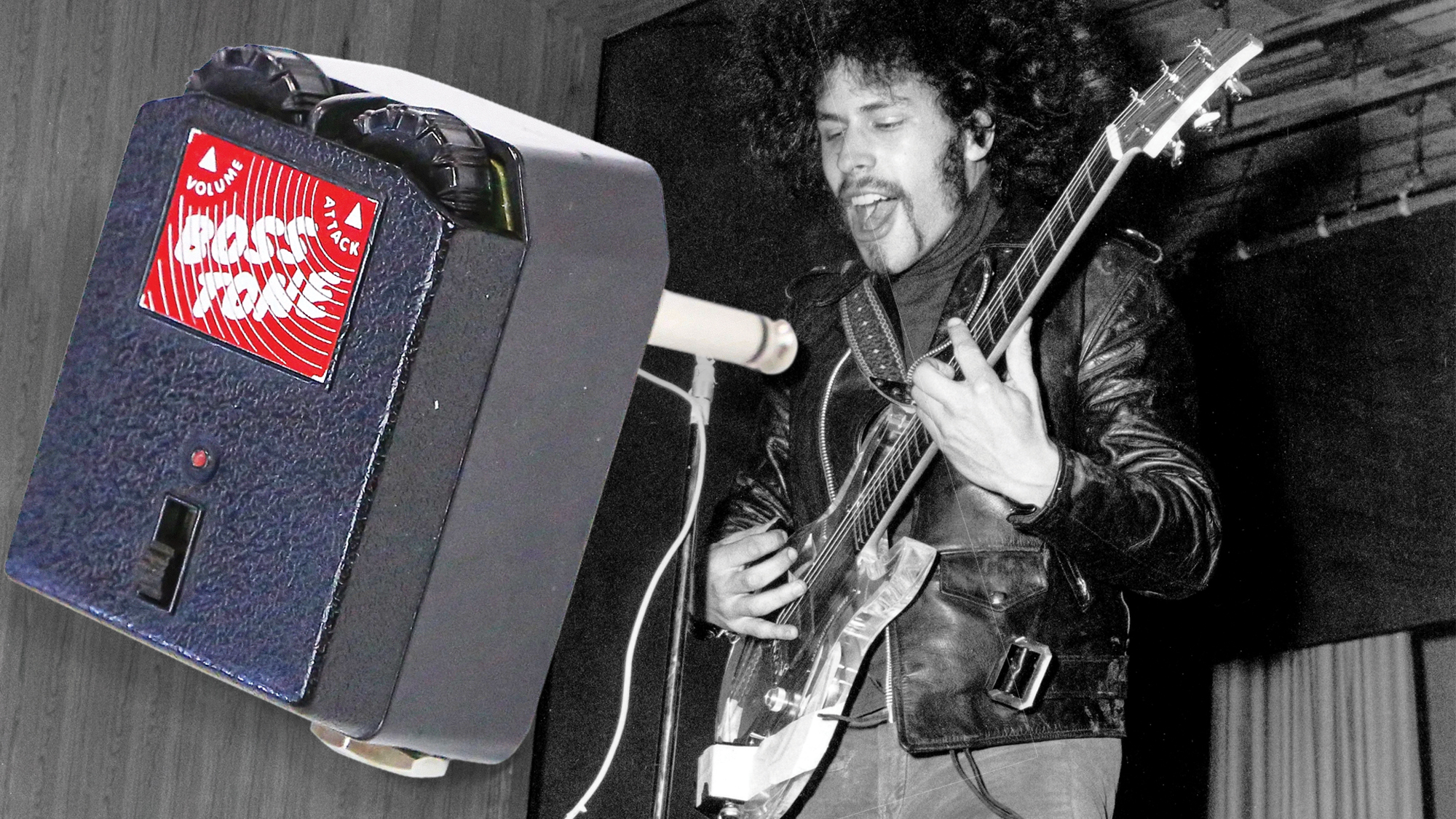Billy Sherwood on his best (and worst) bass albums
The Yes bassist and prog legend takes a critical view of his discography and shares some tone tips and memories along the way

Billy Sherwood, bass player for prog-rock legends Yes, is also a noted producer, guitarist, and keyboard player.
His songwriting chops, technical nous, and sonic explorations have led him on a long journey through prog and its boundary-pushing, complex compositions. Sherwood’s other bands include World Trade, Lodgic, Asia, and Arc Of Life, who he formed along with Jon Davison of Yes.
The bassist was born in 1965 in Las Vegas, Nevada, and is from a solid background of musical performers. His father was an actor and musician, and his mother a singer, as was his late brother Michael, who also played in Lodgic.
Sherwood’s setup includes basses from Spector, Fender, Turner, and more, and he uses a relatively hefty Dunlop 1mm pick, which he prefers for its texture and versatility, using different angles and tilts on the string to produce different attack strengths.
I never in a million years thought I’d replace Chris Squire, my favorite bass player of all time, but we became friends over many decades, and that’s just how life worked out
A noted perfectionist when in the studio, Sherwood’s technical skills are close to the forefront of his approach – but the bassline and the songs always come first.
We caught up with him to chat about his career, his techniques, and his triple amp setups, and got the lowdown on how it feels to play with his heroes – as well as a Yes album that has never got the credit it deserved.
Must-have album: Lodgic – Nomadic Sands (1985)
“This was my first ever album recording, and one that I’m very proud of to this day. It was produced by the guys in Toto, and was a very important record for me because it turned out to be a real learning experience on multiple fronts, and was also the record that was the pathfinder for my career to start going in that direction.
Get The Pick Newsletter
All the latest guitar news, interviews, lessons, reviews, deals and more, direct to your inbox!
“Back then I used Boss choruses, flangers and analogue delays, because I wanted to do my best to have a palette of colors to work with. These days I’m completely digital, though, using the Line 6 Helix, but we got some really cool bass sounds on that record with those old stompboxes.
“It was always a tricky dance, you know – if you wanted a combination of three things for a chorus, and then one thing for a verse, just figuring out the timing of that was its own little move, its own trick. I prefer just hitting one pedal nowadays, though.
“The way that I program my current rig with Yes is that I bring those components in and dirty them up just a little bit, so that things aren’t quite as pristine as digital always wants to be. By adding some crunch I can still have that old-school sort of vibe, while being able to press a single button to change the sound of my bass.”
Worthy contender: World Trade – World Trade (1989)
“The bass guitar sounds are just killer on this record. I had evolved my tones by that point, and I decided to take it into the stereo spectrum rather than a mono bass: I’ve been doing it stereo ever since.
“It was a very large bass rig that I had at that point: Back in the World Trade days I was using three Acoustic 118 amps and running them through three 4x10” cabs. They were stacked up next to each other with the middle amp cabinet being a direct drive.
“The left and the right were the left and the right output of the effect that I was using, and it sounded great. It was quite something to record with: When I brought it in, the producer Keith Olson looked at me, like ‘What are we doing?’
“There’s a song on there called Wasting Time which has quite a cool little riff. It’s tricky to play, but I like it a lot and it still holds up. The other song I would pick out is Lifetime. The bassline had a really interesting melody to it, and what’s interesting is that when Covid kicked in, I started teaching online lessons.
“Some of the students that I teach like to come at me with my own basslines, and a lot of them know the actual bassline for Lifetime, which is quite an impressive achievement, in my opinion anyway.”
Cool grooves: Yes – Live in Las Vegas (2020)
“I never in a million years thought I’d replace Chris Squire, my favorite bass player of all time, but we became friends over many decades, and that’s just how life worked out.
“It’s a very special thing to play that material with them, but more importantly, when I was growing up, discovering Yes, and getting into it as a complete diehard as a kid, I was actually living in Las Vegas. That was where I saw my first Yes show. The fact that we recorded a live album there, as the first record without Chris, and for me to be playing bass, makes the record very special to me for all those reasons.
“We were playing through the song The Gates Of Delirium onstage at the show, and during that song I actually remember thinking to myself, ‘Oh my God, how many times did I play along to this record in this town when I was a kid, just imagining being a musician on that level – and somehow my life has evolved to where that is what I’m actually doing’.
“So it’s a very special thing, this particular record, but it’s also a very, very bizarre thing as well, at least as I see it. That song, The Gates Of Delirium, didn’t actually make it onto the live album. I think we might be saving that particular composition for a future live LP.”
Wild card: Arc of Life – Arc of Life (2021)
“This is a band that spawned from my relationship with Jon Davison, having worked with him so closely on the Yes tours. The songwriting came out of really enjoying working with each other. There’s some really cool basslines on that record: if you’re a bass player, there’s some really cool things to sink your teeth into.
“It’s an unusual project that I never really planned on – it just evolved naturally. Jon and I looked at each other and said ‘Maybe we should build a band around this.’ Songwriting is key, as far as I’m concerned. The skill level involved with playing progressive rock music that we all know and love is one thing, but the songs are what do it for me.
“I think at this point people expect that I’m going to play a lot. In my early days, I’d always be jamming with people and the band would be looking at me like, ‘Can’t you just play the G?’ and I would say, ‘Well, Chris wouldn’t do that. Or McCartney, or Jaco.’ I’d come at the lines from my perspective.
“What was intriguing for me was the composition of the bass part, and when you listen to Awaken, or Gates To Delirium, you start appreciating Chris’s skill in composition. I tried to do that in my own world, so the compositions of the bass parts on this album are unique.”
Rough diamond: Yes – Open Your Eyes (1997)
“This album gets a real bad time out there among Yes fans, but when I listen to it myself, I hear things that are still very much Yes. I replaced Chris and I’m in the band, but I’m still a fan of the band, so I still listen to the classic stuff.
“I really love the song Fortune Seller – that bassline and the sound of the eight-string bass is killer – but there are a couple of tunes on there that make me wonder why we put them on the record. Still, I find, now that years have passed since the release of the album, that it’s actually not so bad.
“Songs like New State Of Mind and The Solution, for example – there’s some material on there that’s quite cool. I just think that they got wrapped up in the politics of the moment, because that record came along right after [legendary keyboard player] Rick Wakeman left the band. As a piece of music and a piece of art, I have nothing but respect for it.
“I appreciate that everybody’s entitled to their opinion when it comes to music and art, but in my heart of hearts, I know why we made this record, and I also know that our intentions were totally pure at the time. The band was really prospering at that point in their career, so it was mission accomplished, as far as I was concerned.”
Bass Player is the world’s most comprehensive, trusted and insightful bass publication for passionate bassists and active musicians of all ages. Whatever your ability, BP has the interviews, reviews and lessons that will make you a better bass player. We go behind the scenes with bass manufacturers, ask a stellar crew of bass players for their advice, and bring you insights into pretty much every style of bass playing that exists, from reggae to jazz to metal and beyond. The gear we review ranges from the affordable to the upmarket and we maximise the opportunity to evolve our playing with the best teachers on the planet.










